Are you constantly worried about managing your blood sugar levels through your diet?
Controlling blood sugar can feel like maneuvering through a minefield, especially when faced with endless food options and conflicting advice.
But fear not! In this blog, we’ll delve into the best foods to reduce blood sugar levels, providing you with clarity and confidence in your dietary choices.
Stay tuned to learn the power of food to manage blood sugar effectively and take control of your health.
Foods for Lowering Blood Sugar
For people with diabetes, it is good to take food that is absorbed slowly by the body. This will prevent any kind of spike in the blood sugar level in their bodies.
The glycaemic index (GI) is a number that is assigned from 0-100 and is used to describe the rise in blood glucose level 2 hours after having the food.
Food with low GI is 55 or less and food with high GI is more than 70 and food with medium GI is between 55-69. Food with low and medium GI scores can be mixed to have a balanced diet.
We will discuss the importance of eating healthy food that has a low glycemic index but is also good to taste
10 foods to reduce blood sugar levels
1. Vegetables
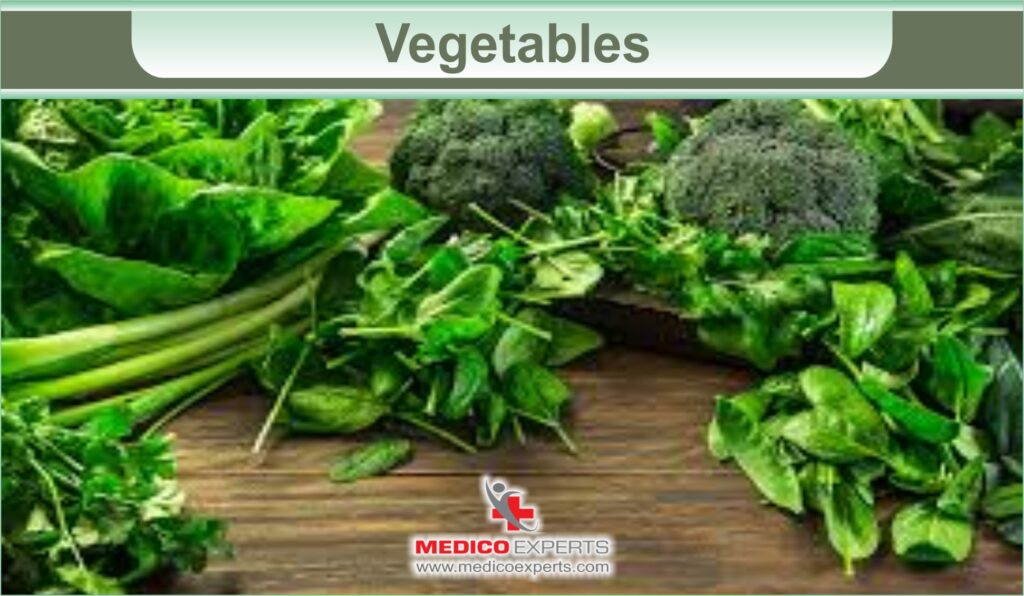
Broccoli
Research shows that eating broccoli and its compound sulforaphane can help lower high blood sugar, high cholesterol, insulin resistance, and the stress caused by diabetes. These effects are linked to certain pathways in the body and the inhibition of specific activities related to diabetes.
While broccoli and sulforaphane aren’t considered standard diabetes drugs, they can be helpful alongside other treatments.
Lady’s finger
Lady’s finger contains compounds like polysaccharides and flavonoid antioxidants that can help lower blood sugar levels. Lady’s finger, the main polysaccharide found in it, has been identified as a potent antidiabetic compound.
Additionally, lady’s finger contains the flavonoids isoquercitrin and quercetin 3-O-gentiobioside, which aid in lowering blood sugar levels by inhibiting specific enzymes.
2. Fruits
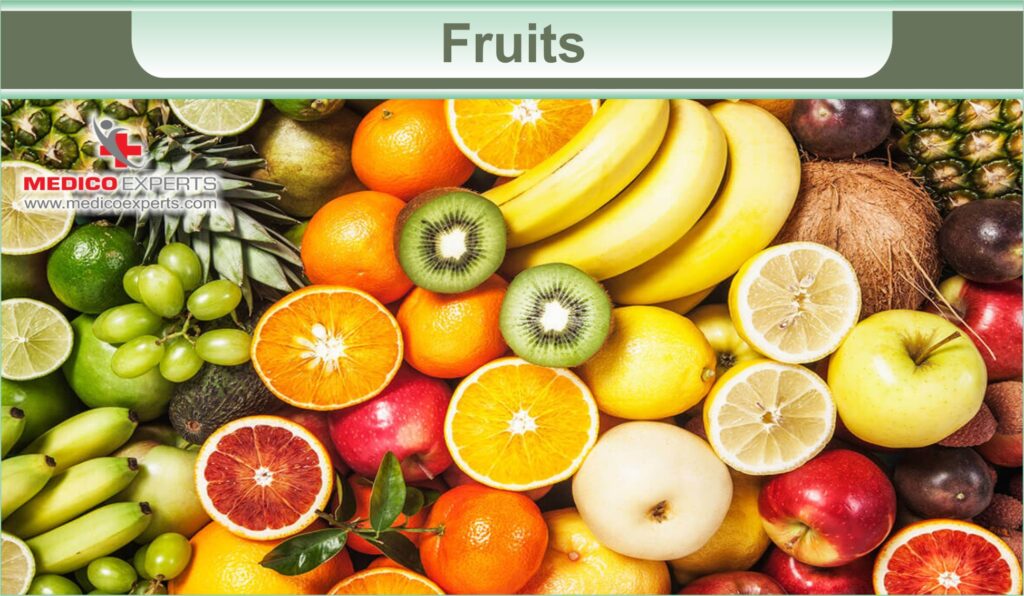
Except for pineapples and melons, most fruits tend to have low GI scores. This is because they are rich in water and fiber, which help balance out their natural sugar content, known as fructose.
A study conducted in 2017, which monitored approximately half a million individuals in China over 7 years, discovered that those who consumed fresh fruit daily had lower rates of Type 2 Diabetes Mellitus (T2DM). Grapes, apple peaches, plums, and berries are excellent for managing sugar.
As fruits ripen, their GI scores can increase. Fruit juices, in particular, often have high GI scores because the juicing process removes the fibrous skins and seeds. So, you should have fresh fruit.
3. Seeds
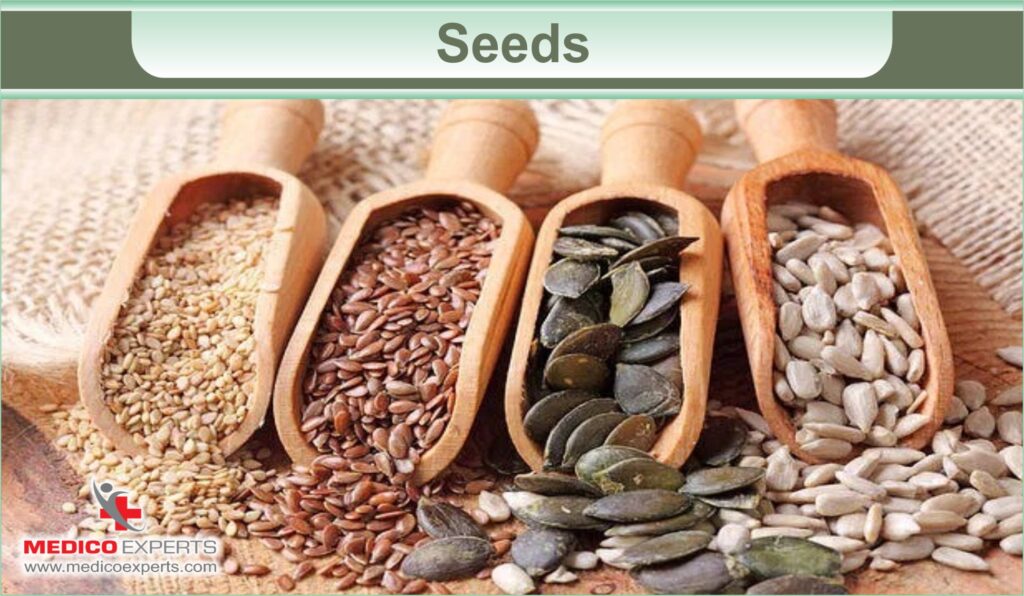
These are some of the seeds that can help lower sugar levels:
Fenugreek Seeds:
As per studies, Fenugreek, also known as Methi, offers numerous benefits, particularly for diabetes patients due to its unique properties. Its soluble fiber helps control glucose levels by reducing glucose absorption. Higher dosages exhibit a stronger hypoglycemic effect.
Sesame Seeds:
Scientists have found that sesame seeds are packed with nutrients, making them ideal for diabetes patients aiming for a healthy diet. Their magnesium content helps maintain blood pressure, while antioxidants combat oxidative stress. Additionally, their high protein and healthy fat content contribute to their special qualities.
Kalonji Seeds:
As per researchers, Kalonji, also known as black cumin or nigella, is renowned for its medicinal properties, aiding in diabetes management, heart issues, hypertension, and weight loss. Often referred to as “Miracle Seeds,” they add a delightful aroma to food as a spice.
Pumpkin Seeds:
Pumpkin seeds are rich in magnesium, fiber, and healthy fats, essential for various bodily functions, including energy production. Research indicates that compounds in pumpkin seeds may aid in blood sugar management, particularly beneficial for individuals with insulin resistance, a common factor in diabetes. Increasing magnesium intake by 100 milligrams per day has been associated with a 15% decrease in the risk of developing type 2 diabetes, as reported by the Office for Dietary Supplements.
4. Oats:
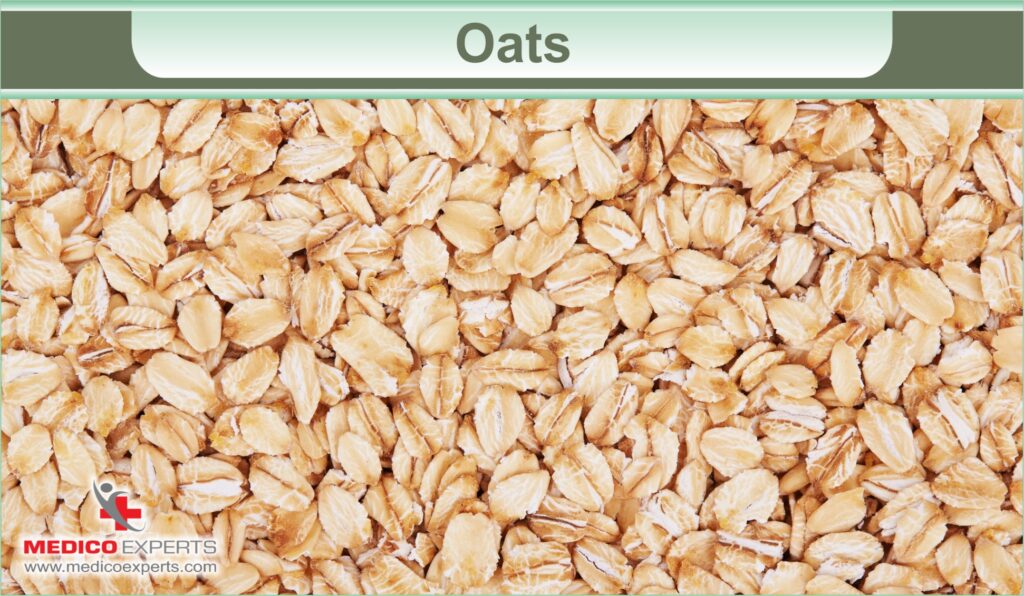
Studies show that oats are foods that have low GI scores, improve insulin sensitivity, and maintain low glycemic control. It has beta-glucan which can lower the blood sugar levels after the meal. It also lowers the lipid profile of type-II diabetes patients. Stone ground oats are more useful than processed oats.
5. Nuts:
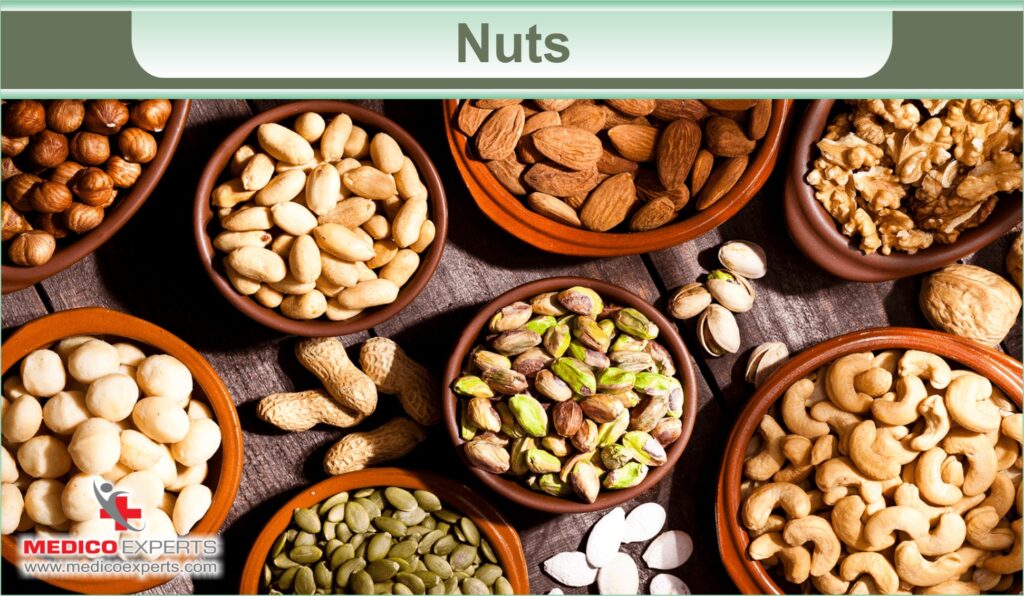
Nuts have a lower GI score below 55 and they contain antioxidants, vitamins, phytochemicals, and minerals such as potassium and magnesium. Here are some nuts that are excellent for blood sugar control:
Walnuts:
Walnuts may contribute to reducing the risk of developing diabetes. A research in 2018 found that individuals who consumed walnuts within 24 hours were half as likely to have diabetes compared to those who did not consume nuts.
Cashews:
Cashews can improve the ratio of HDL to LDL cholesterol and lower the risk of heart disease. A 2018 study involving participants with type 2 diabetes showed that a cashew-enriched diet led to lower blood pressure and higher HDL cholesterol levels without adverse effects on blood glucose levels or weight.
Almonds:
Almonds offer various benefits for individuals managing diabetes. A study in 2011 revealed that integrating almonds into the diets of type 2 diabetes patients for 12 weeks positively impacted blood sugar levels and reduced the risk of heart disease.
Pistachios:
Pistachios, although energy-dense, contain beneficial amounts of fiber and fats. In a 2015 study, participants with type 2 diabetes who consumed a pistachio-enriched diet for four weeks exhibited significantly improved HDL to LDL cholesterol ratios and lower triglyceride levels, indicative of better heart health.
Peanuts:
Peanuts, rich in protein and fiber, offer multiple health benefits. Incorporating peanuts into the diets of females with obesity at risk of type 2 diabetes helped control blood sugar levels and appetite, potentially aiding in weight loss and reducing diabetes risk.
6. Legumes:
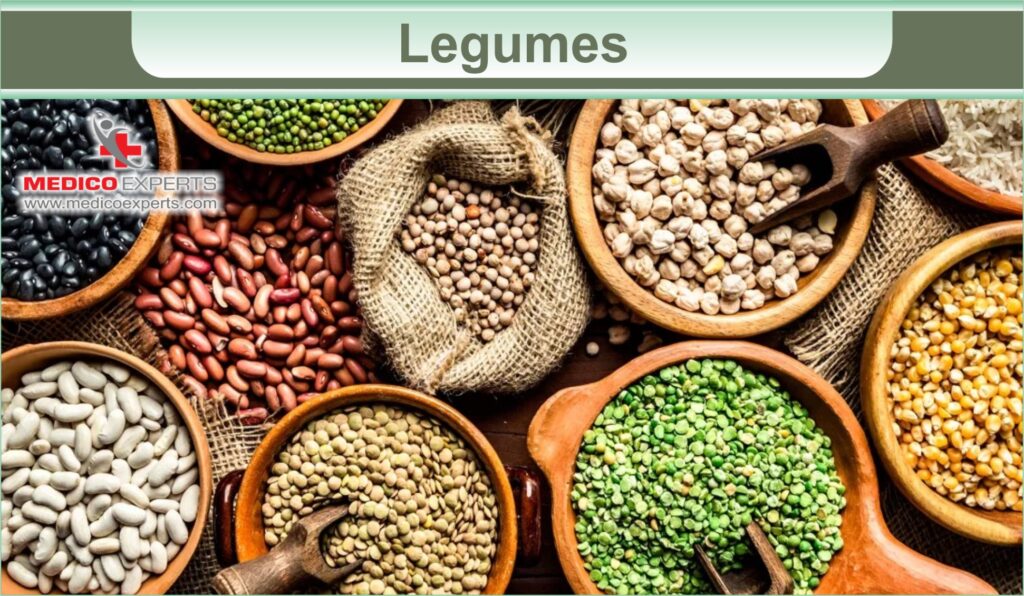
They are a good source of protein, fiber, and complex carbohydrates. They have low to medium GI scores. Lentils and chickpeas are good legumes to consume for high-sugar patients. and can be eaten along with rice to lower the glucose spike after the meal.
7. Yoghurt:
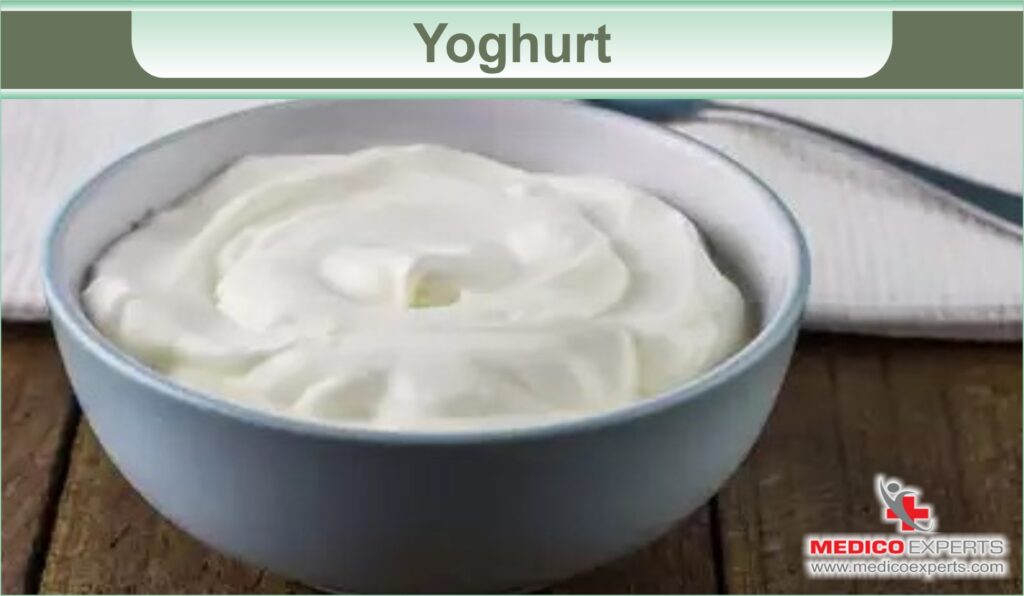
Yogurt is a very good food to reduce the effect of type II diabetes on the body. They have a GI score of 50 and below and can be one of the most essential dairy products for diabetes patients. Sweetened yogurts should be avoided along with flavored yogurts.
8. Garlic:
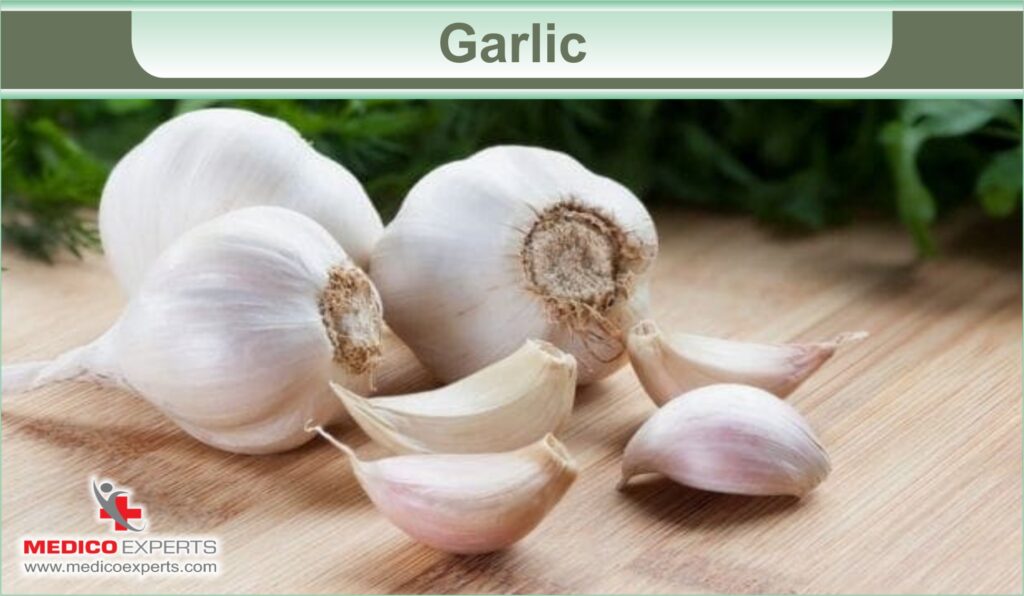
Garlic has been shown to reduce blood sugar levels when taken along with metformin for 12 weeks. It also helps to manage the cholesterol and lipid levels in the blood. It can be mixed with vegetables, added to cooked meals, and can be eaten raw.
9. Eggs:
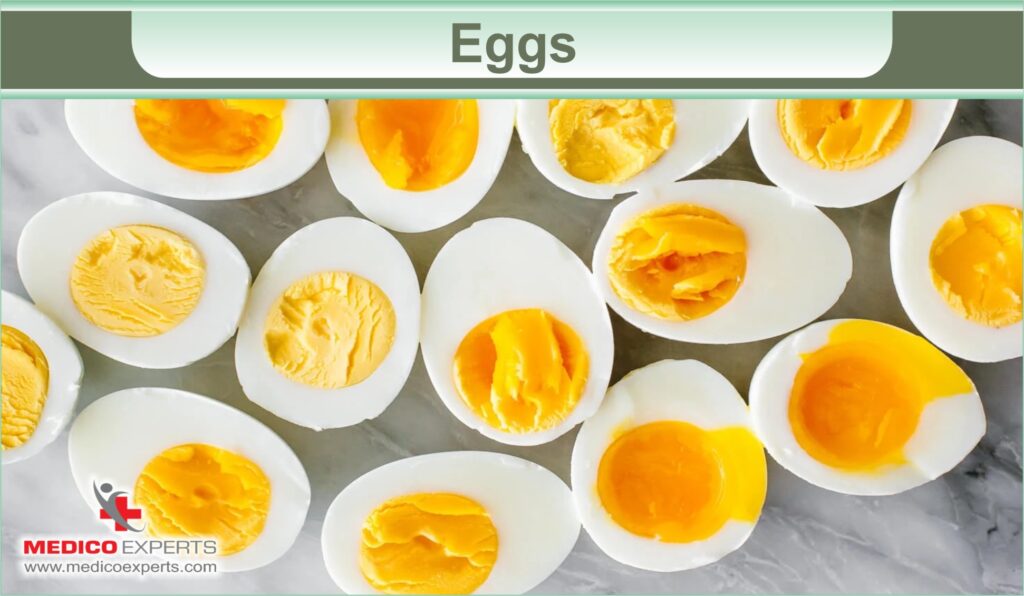
Eggs are a protein-rich food with minimal carbohydrates and a low glycemic index rating. This makes them an excellent protein source suitable for individuals managing diabetes. according to a 2018 study, eating eggs regularly can improve fasting blood glucose in people.
10. Grains:
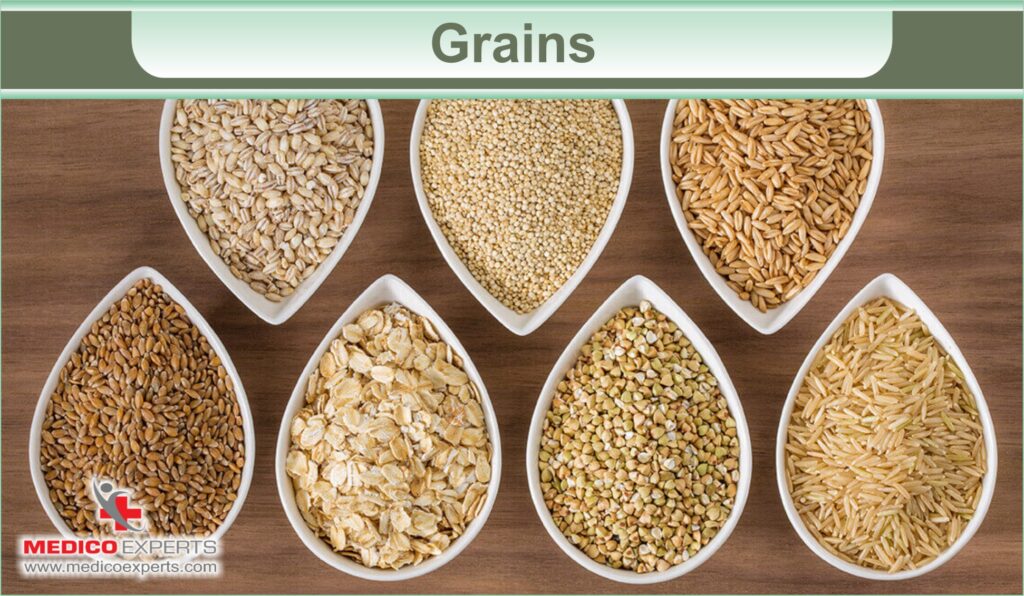
Millets and sorghum are the best grains to consume for high blood sugar patients. They not only have low GI scores but can also reduce fasting blood sugar by 12% and postprandial (after meal) sugar by 15%. Rotis made from millet and sorghum are the perfect natural diet to reduce high blood sugar.
The 2020 review concluded that consuming high-fiber whole grains or pseudocereals improves insulin sensitivity and lowers blood sugar response after meals, though individuals should be mindful of portion sizes due to the carbohydrate content of whole grains.
It has also been found that processed grains have a high GI index and should be avoided by people with type II diabetes.
Conclusion
Although food and exercise can control blood sugar to a great extent, they cannot reverse the condition of severe diabetes. Medications also may not work after some years and have side effects on the kidneys.
Stem cell therapy is an innovative therapy with the regeneration of damaged pancreatic cells and thus improving the production of insulin. In the case of insulin insensitivity (lack of proper absorption of glucose from blood due to poor insulin content in the blood), the muscles, and liver fail to absorb glucose from the blood. Stem cell therapy can reverse this condition by increasing insulin levels in the blood.
Therefore, stem cells can be an option to treat diabetes in case of failure of medicine to control the disease.
FAQ :
Q1. What foods will lower blood sugar quickly?
Food with a low glycemic index can lower blood sugar quickly.
Q2. Which food is good for sugar control?
For controlling sugar, protein, and fibre-rich foods are the best.
References
https://www.science.org/doi/10.1126/scitranslmed.aah4477
https://www.webmd.com/diabetes/okra-diabetes-benefits-risks-uses
https://pubmed.ncbi.nlm.nih.gov/28399126/
https://www.ncbi.nlm.nih.gov/pmc/articles/PMC4591578/
https://pubmed.ncbi.nlm.nih.gov/21675032/
https://www.tandfonline.com/doi/abs/10.1080/10408398.2011.635816?journalCode=bfsn20
https://www.ncbi.nlm.nih.gov/pmc/articles/PMC4690088/
https://onlinelibrary.wiley.com/doi/full/10.1002/dmrr.3031
https://pubmed.ncbi.nlm.nih.gov/29378038/
https://www.metabolismjournal.com/article/S0026-0495(10)00128-9/abstract
https://pubmed.ncbi.nlm.nih.gov/20580779/
https://www.ncbi.nlm.nih.gov/pmc/articles/PMC4872503/
https://docs.lib.purdue.edu/cgi/viewcontent.cgi?article=1004&context=fnpubs
https://jamanetwork.com/journals/jamainternalmedicine/fullarticle/1384247
https://www.ncbi.nlm.nih.gov/pmc/articles/PMC4763470/
https://www.ncbi.nlm.nih.gov/pmc/articles/PMC5642189/
https://pubmed.ncbi.nlm.nih.gov/30073224/
https://www.mdpi.com/2072-6643/12/10/3045#B112-nutrients-12-03045



